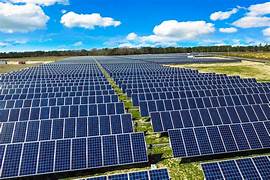Solar powered flashlight

Solar powered flashlights or solar powered torches are flashlights powered by solar energy stored in rechargeable batteries. A solar powered flashlight uses sunlight energy, converted into electrical energy in a solar photovoltaic (PV) cell or panel that sits on the outside of the flashlight, that is then stored in a battery. Most solar powered flashlights use LED or Light Emitting Diode lamps rather than an incandescent light bulb, as LED’s take less electrical current to operate, and they last longer. For best results, keep your solar powered flashlight on a window sill when it is not in use, where the solar panel is exposed to the maximum amount of sunlight. If you’re not using it regularly, be particularly mindful to turn it on…and leave it on…as described above, at least once a month.
Features
Solar powered flashlights vary in features and capabilities. A typical solar flashlight can give useful levels of illumination on objects up to 50 metres away, and beam may be visible for much longer distances. The solar cells used for battery charging have an indefinite life expectancy. A solar powered flashlight may give several hours of light after being charged during the day. These flashlights may be designed to be impact resistant, weatherproof, and to float.
Other models include features such as a solar cell phone charger, an AM/FM radio, or a siren to call for help in an emergency. Some models include a hand crank dynamo for charging at night. An experimental solar flashlight the size of a credit card features a white LED powered by 16 solar cells.
Although most of these substances are harmless in the short term without cleaning they can build up and cause issues for your panels. Not only will your panels look ugly and diminish the look of your exterior, it can also mean difficulty with the functioning of the panels. Your panels may reduce the energy disposition to your home.
However cleaning your panels shouldn’t be a weekly activity, your cleaning schedule for your panels should be dependent on your intuition and look of the panels. If you live in a rural area and nature is harsh towards your panels then you may need to clean them more regularly than other solar panel owners. If the panels are covered in dirt or muck then you should definitely give them a thorough clean and make note of how long it takes for them to get back into this condition.

